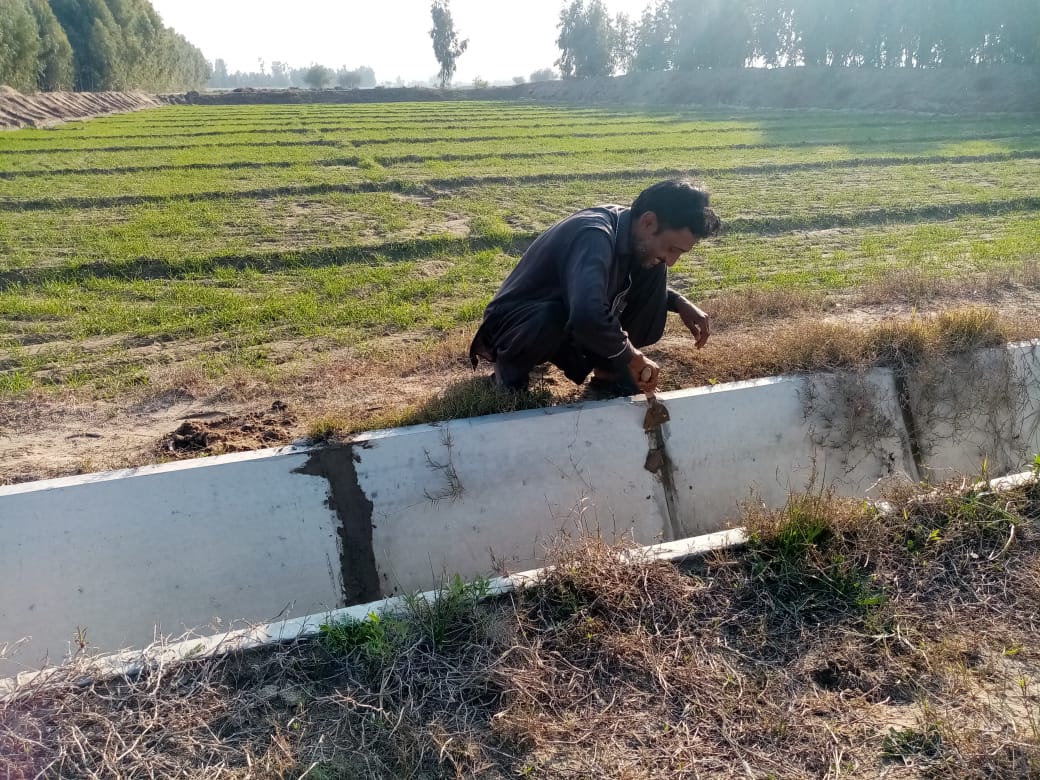
Pakistan is facing serious threats from escalating water shortages. Over half Punjab’s share of water in agriculture is lost in canals and watercourses due to poor maintenance of water courses and seepage. These water losses have resulted in scarcity of irrigation water and created number of problems like low water use efficiency, and low crop production.
Caritas Pakistan under its SAFBIN Program has formed SHFCs in target villages. These SHFCs is a good forum to discuss different problems and find solutions in a participatory way. Keeping in view existing problem of water scarcity, Caritas Pakistan repaired and renovated watercourses in ten villages of district Sargodha & Khushab in Pakistan. The main objective is to increase an agricultural production by effective utilization of irrigation water through improved canal and tube-well commanded watercourses. The government irrigation department helped SAFBIN teams in identifying the damaged watercourses and also provided technical expertise. For efficient and optimum use of the water, parts of watercourses were repaired and necessary water control structures were installed to improve conveyance of the canal and tube well water. Almost ten kilometres (five kilometres in each district) of water channels were repaired and renovated in the ten villages.
Sixty water outlets were also installed and culverts were constructed / repaired in the same villages. SAFBIN Program supported the smallholder farmers with the material required for the construction and renovation while the smallholder farmers contributed with all the labour cost. With the repair of damaged water courses and culverts, small farmers have better access to irrigation water, farm and nearest market. Also they can easily move their livestock and agriculture implements from one place to another. It is expected that this much contribution from SAFBIN program will improve water use efficiency, crop yield and income of the small holder farmers.